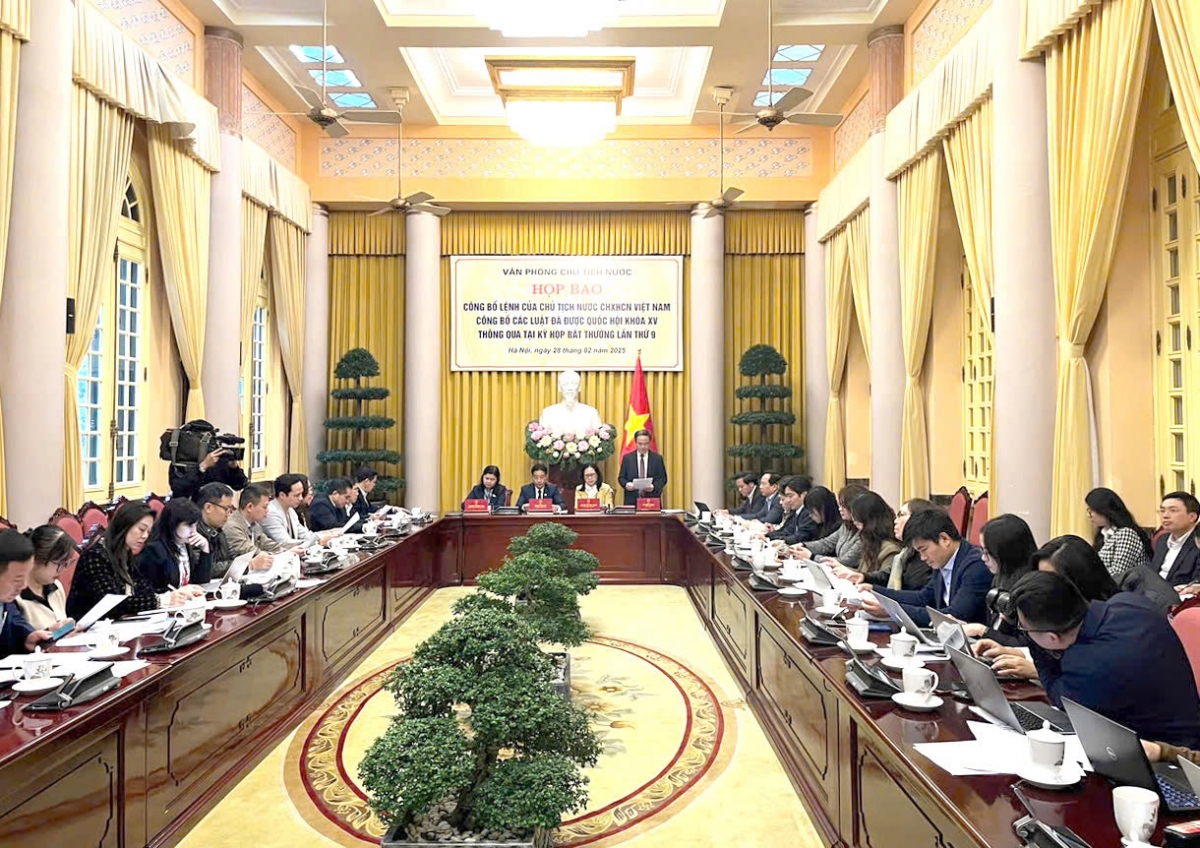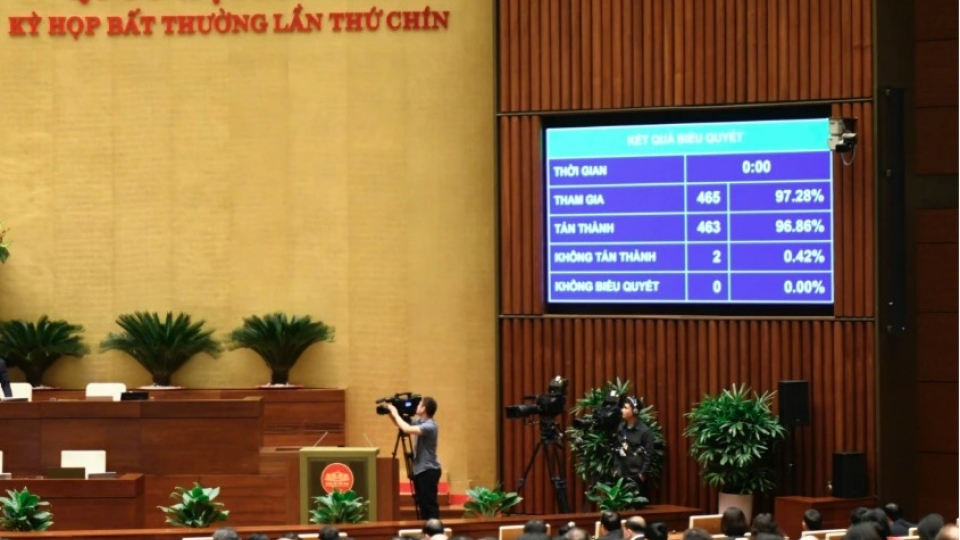New laws on organization of Gov’t, legislature, local governments promulgated
VOV.VN - The President’s Office held a press conference on February 28 to announce the President’s decision to promulgate three laws recently passed by the 15th National Assembly during its 9th extraordinary session.

The three laws are the revised Law on the Organization of the Government, the Law amending and supplementing certain provisions of the Law on the Organization of the National Assembly, and the Law on the Organization of Local Governments.
The Law on the Organization of the Government was developed in a special context to improve the administrative system following the law-governed socialist state model. It serves as the fundamental law of the national administration, providing a legal basis for the organization and operation of the Government.
The law that consists of 5 chapters and 32 articles ensures continuity and stability within the legal system. A key highlight is the first-time inclusion of provisions on authority delineation, decentralization, delegation, and authorization among the Government, the Prime Minister, Ministers, and local authorities.
Among the key new features, the law clarifies the relationship between the Government, the National Assembly, and the Judiciary, ensuring effective coordination among these state agencies. It defines the Prime Minister’s responsibilities and authority as the head of the Government, leading the administrative system from central to local levels.
The law also specifies the powers of Ministers and Heads of ministerial-level agencies, and enhances decentralization for local authorities under the principle of "local decisions, local implementation, local accountability," thus facilitating swift resolution of institutional bottlenecks and resource mobilization.
This revised law marks a groundbreaking shift in legislative thinking, as the National Assembly has, for the first time, entrusted the Government with unprecedented and urgent tasks in a historically significant period. It reflects a bold and innovative approach to governance and legislative reform.
The law will come into effect as of March 1, 2025.
On February 17, the National Assembly passed amendments to the Law on the Organization of the National Assembly, aiming to streamlining the organizational structure within the political system, rearrange and strengthen the National Assembly bodies, and ensure consistency with the amended Law on the Organization of the Government and amended Law on the Organization of Local Governments.
The law amended 21 articles and repealed 17 articles in the former Law on the Organization of the National Assembly. Notably, it amended legislative processes (Article 5) to clearly define the scope of matters to be regulated by laws and National Assembly resolutions. It governs the restructuring of the Ethnic Council and Committees of the National Assembly to align with their functions and responsibilities.
The law adjusts the operations of the National Assembly, Standing Committee, and deputies, including regulations on confidence votes for officials elected or approved by the National Assembly; the role of National Assembly deputies in the Ethnic Council and Committees; authority of the National Assembly Standing Committee in drafting laws, ordinances, and resolutions, and budget allocations for National Assembly operations and regulations on National Assembly sessions.
The law took effect as of February 17, 2015.
On February 19, the National Assembly passed the Law on the Organization of Local Governments that will take effect on March 1, 2025.
The new law consists of 7 chapters and 50 articles, reducing 1 chapter and 93 articles from the 2015 version. It introduces a new chapter on authority delegation, by clarifying roles and responsibilities among different levels of local governments. It clarifies roles and powers of People's Councils and People's Committees at each administrative level.
The legislation defines responsibilities between local government levels and between the People's Council and the People's Committees at the same level. It increases authority and accountability of the head of the People’s Committee.
The law was formulated to define principles of authority delegation, decentralization, and delegation of powers for local governments. It removes institutional and policy bottlenecks, while enhancing local autonomy under the principle “Local decisions, local actions, local accountability.” It ensures legal stability while allowing flexibility for adjustments by the Standing Committee of the National Assembly and the Government as needed.
The adoption and announcement of these laws aim to streamline and enhance the efficiency and effectiveness of state agencies at both central and local levels. This is a significant step in administrative and governmental organizational reform, meeting the demands of socio-economic development in the new period.





